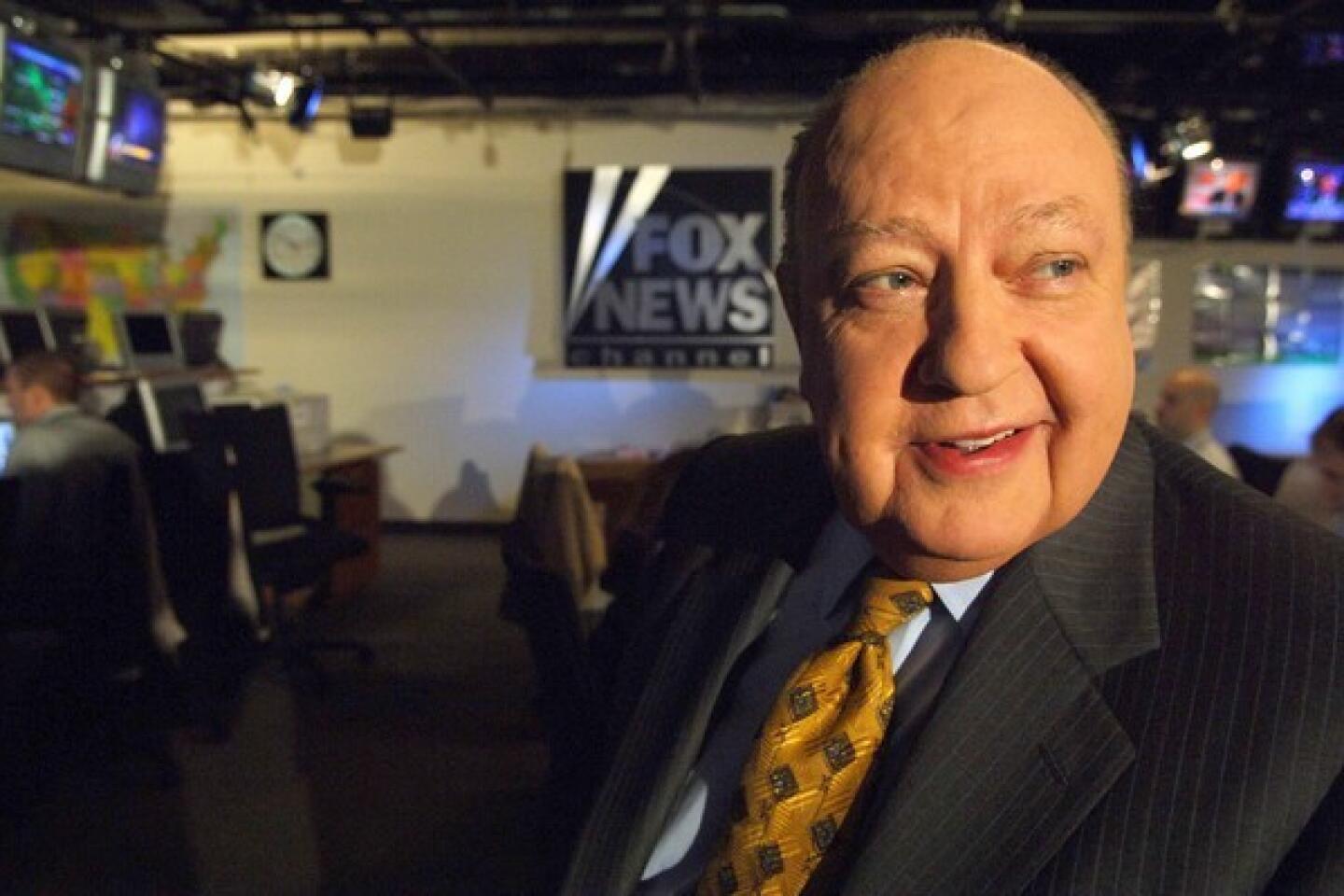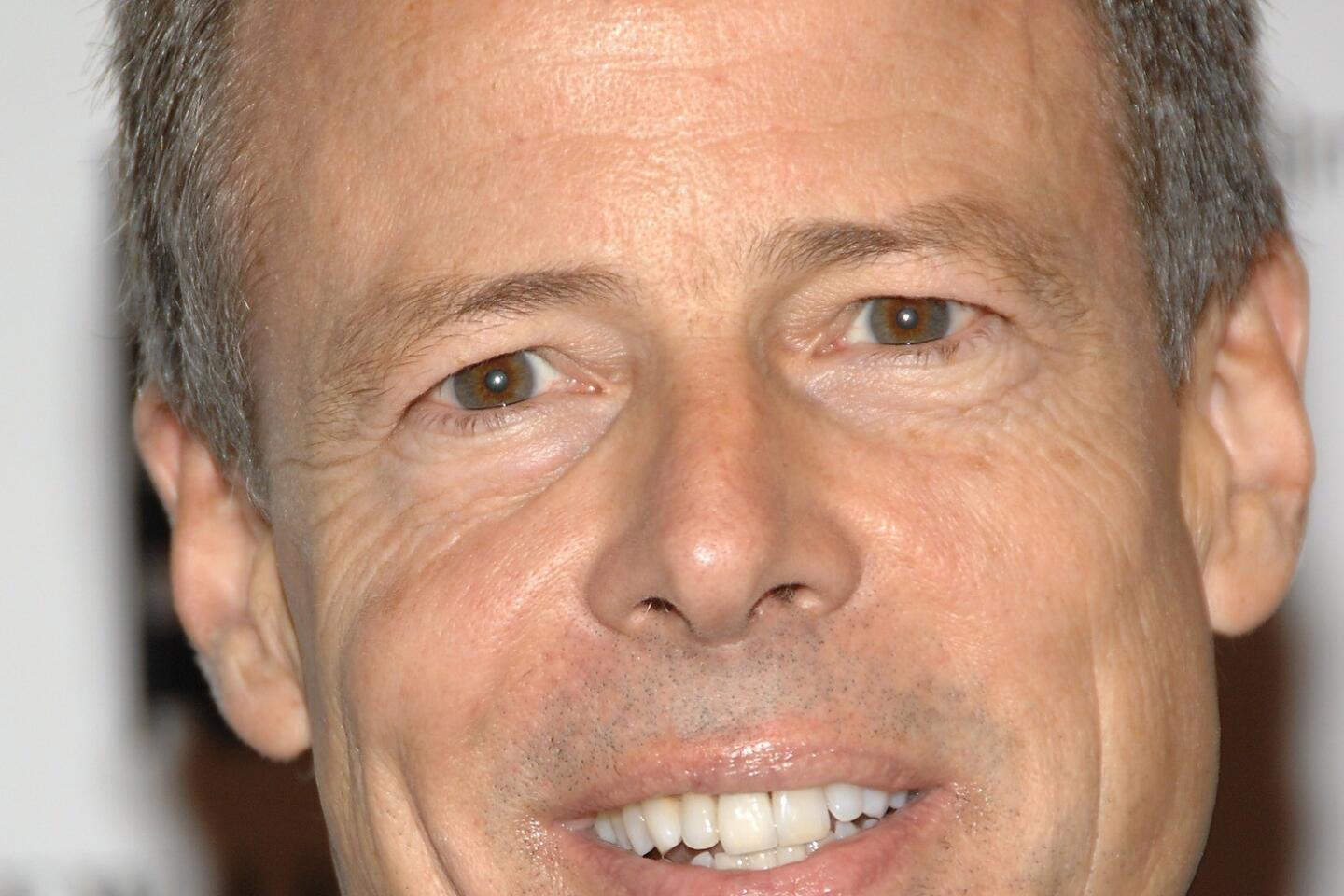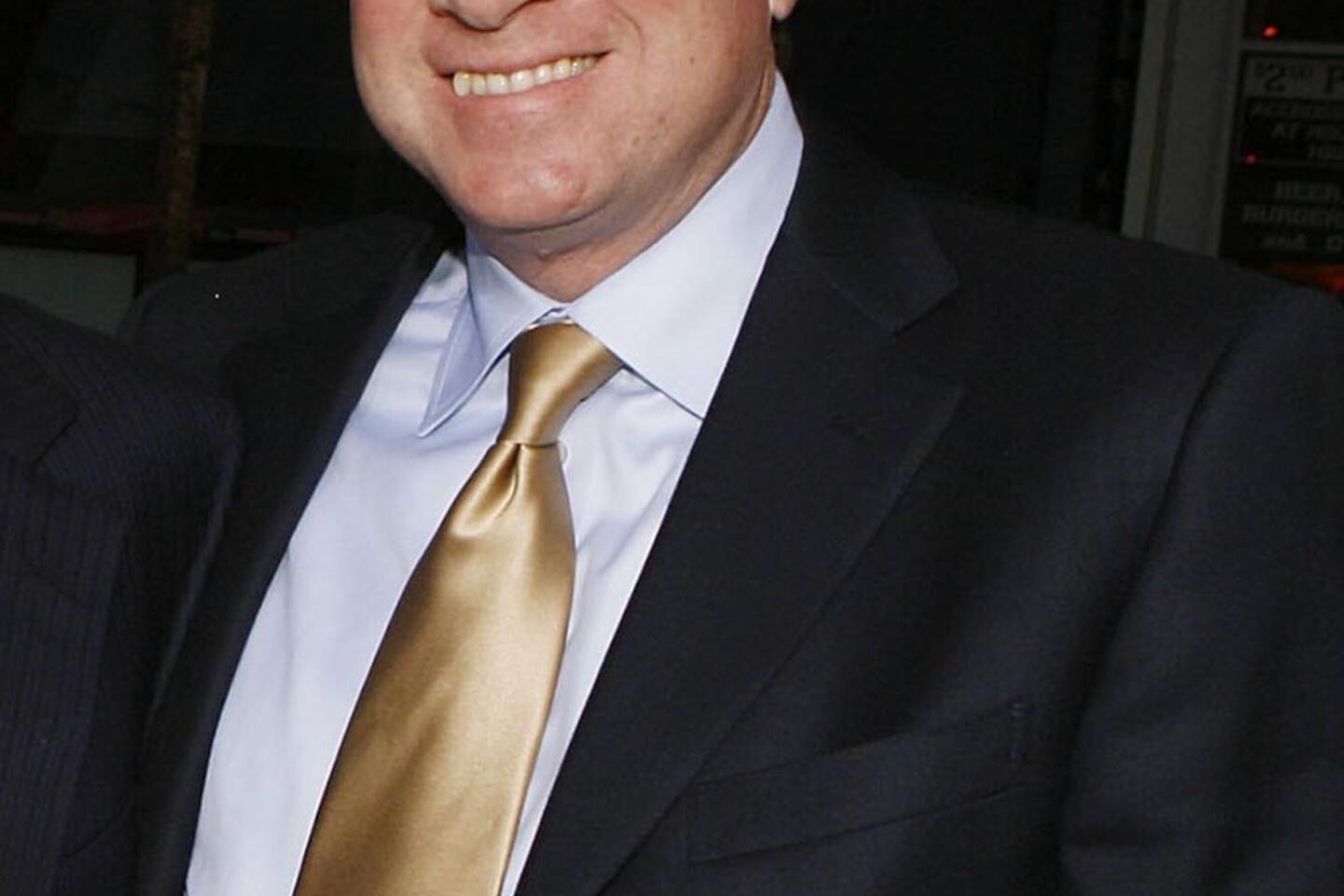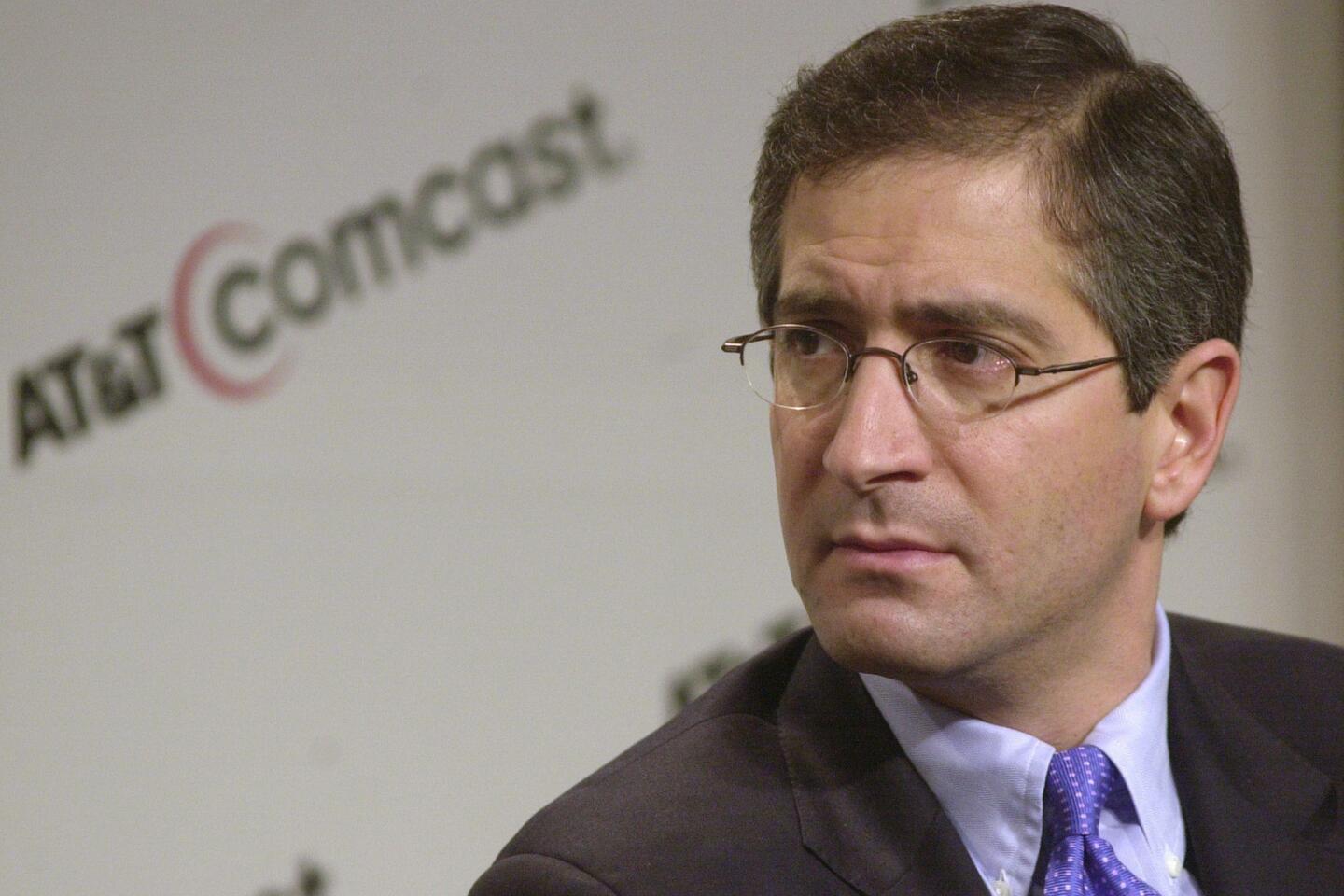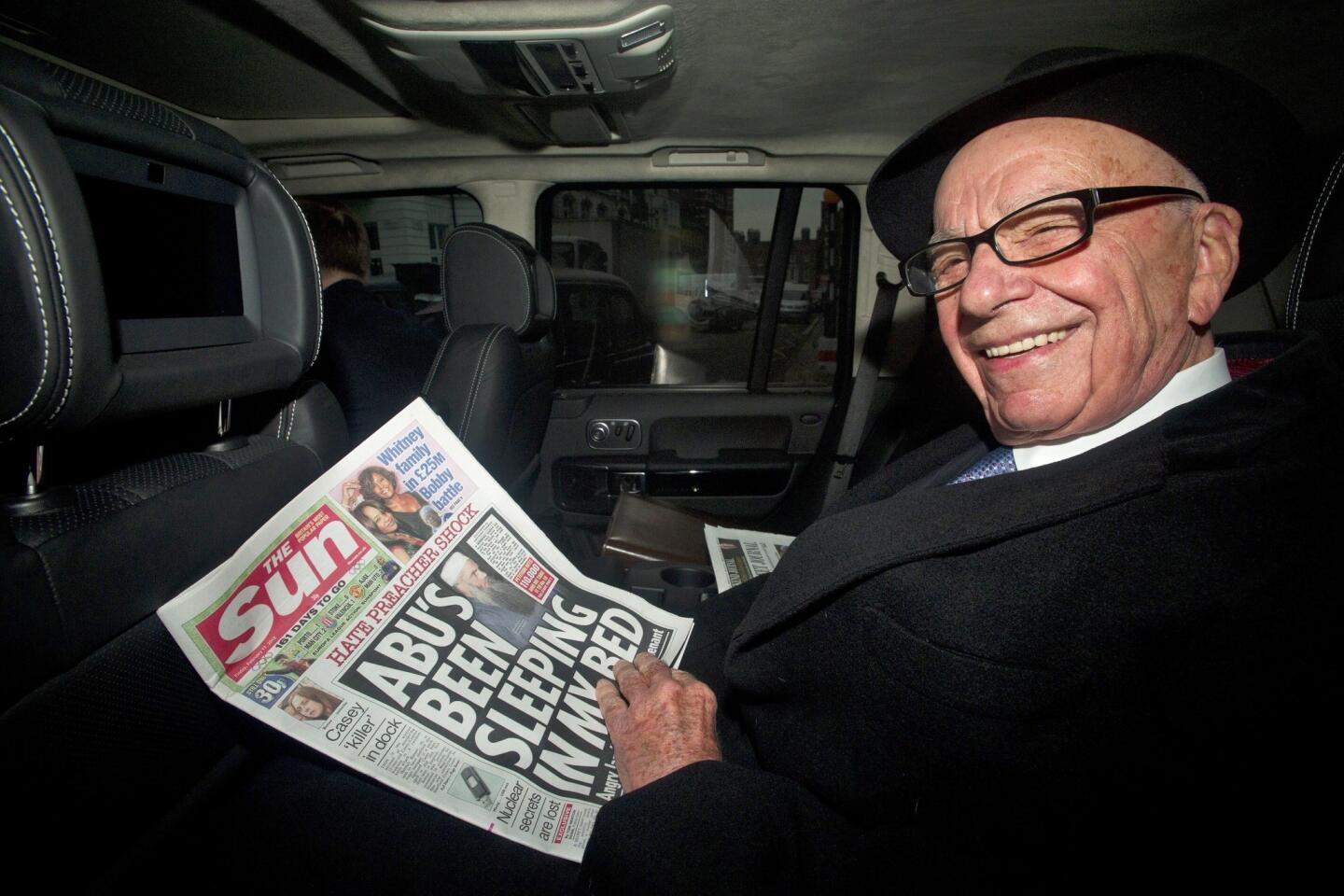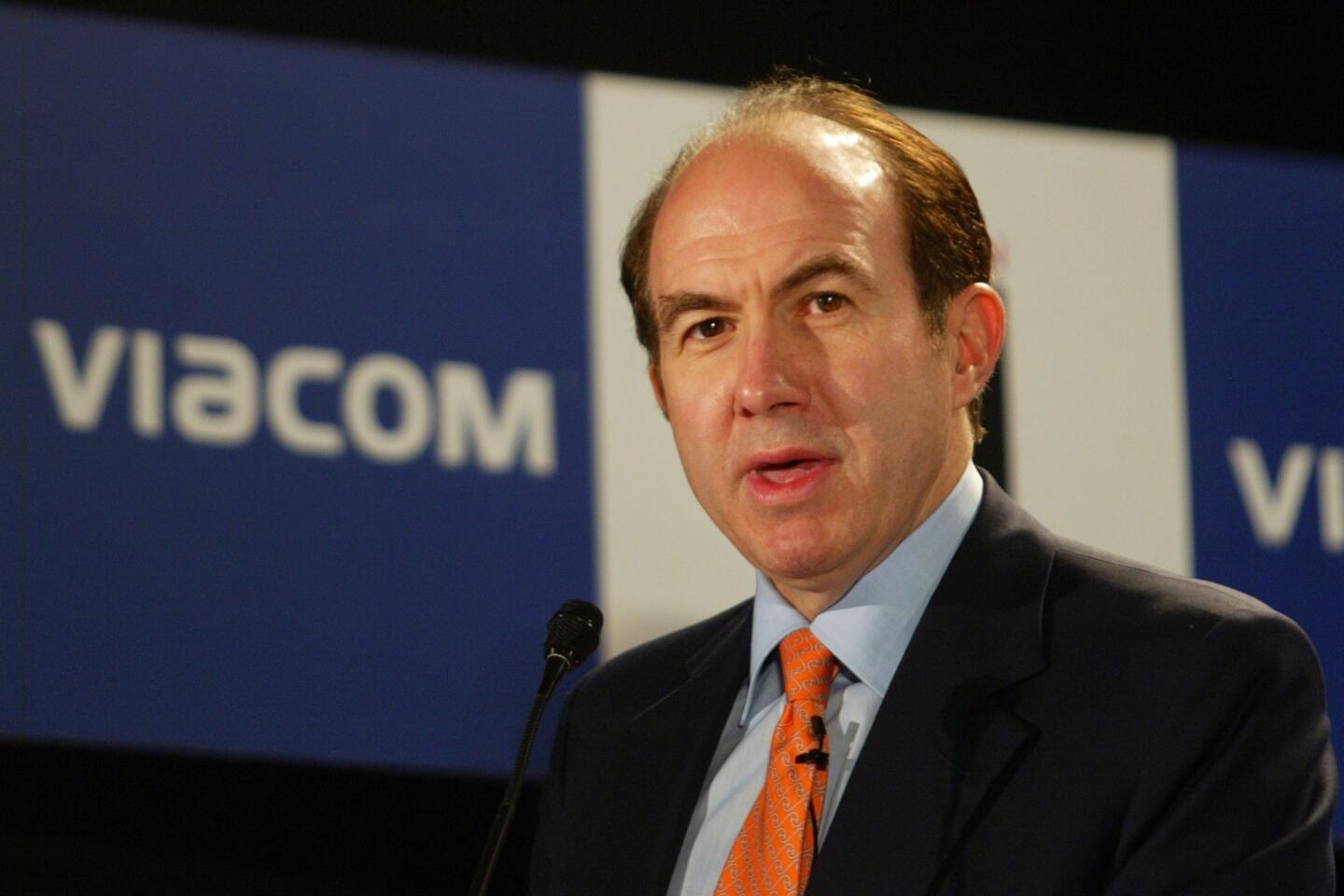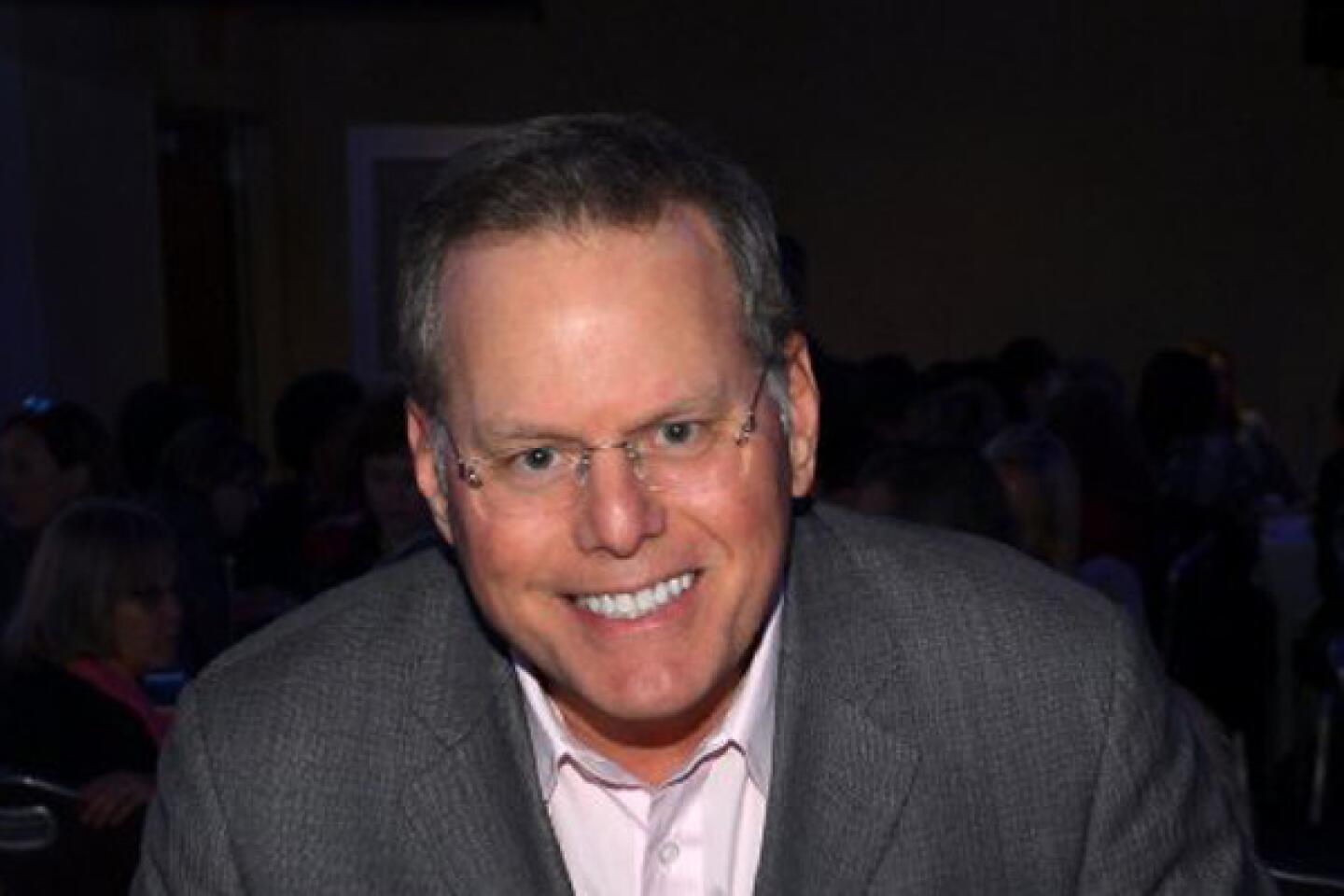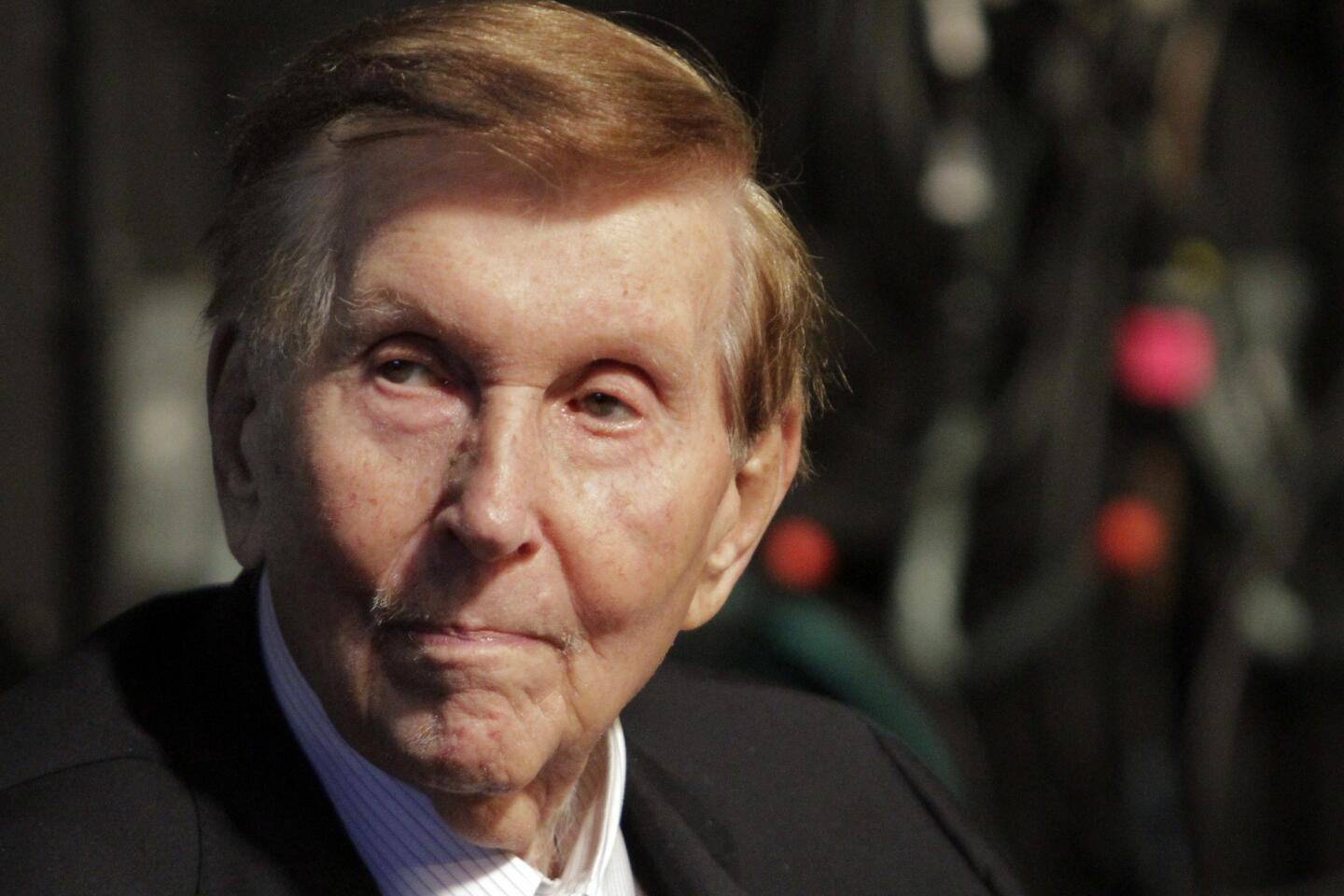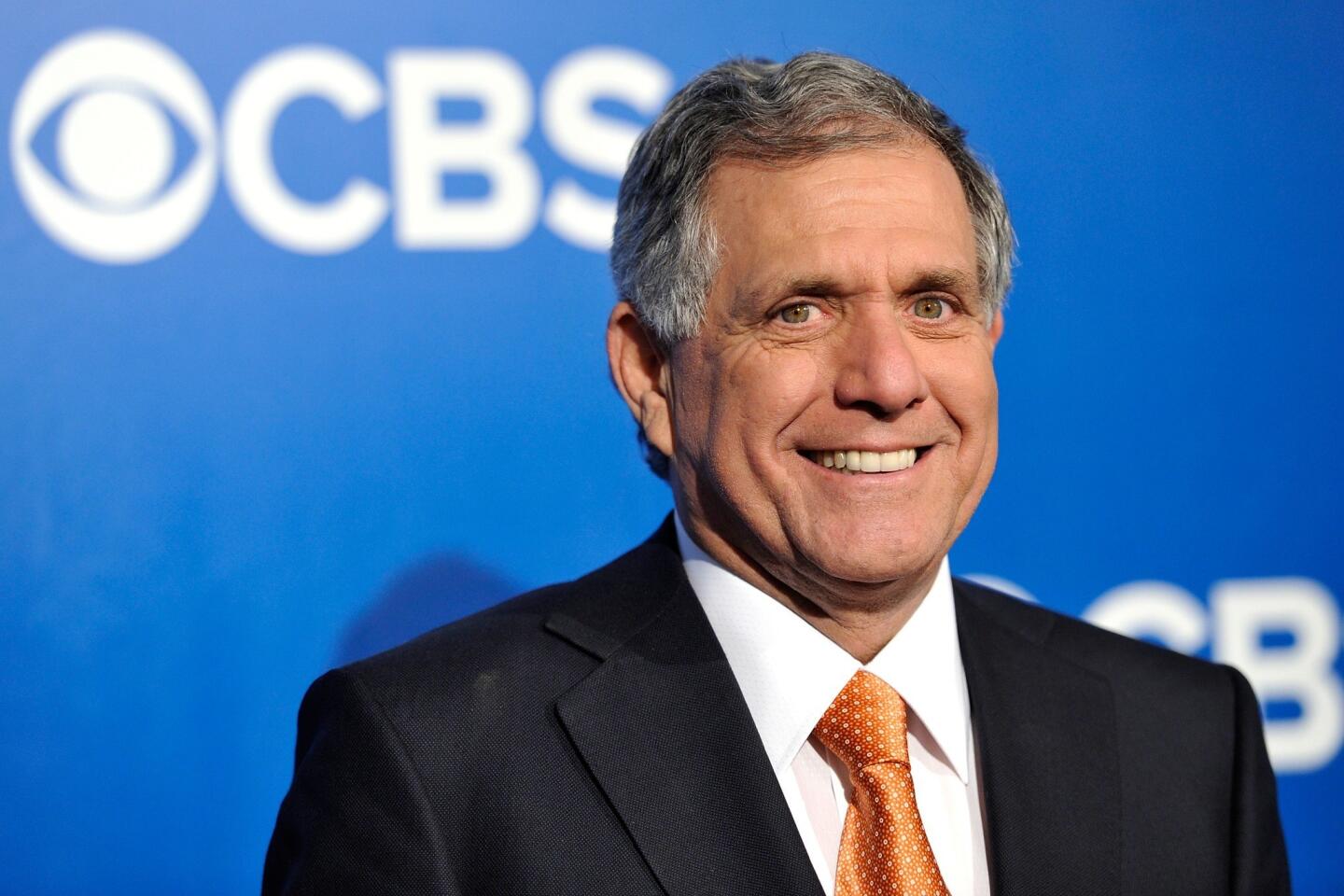Challenge for Activision CEO: capitalizing on next-gen game consoles
- Share via
In his only big-screen film role, Activision Blizzard Inc. Chief Executive Bobby Kotick appeared in “Moneyball” as a penny-pinching owner of the Oakland Athletics baseball team.
“I’m asking you to be OK not spending money that I don’t have,” he tells team manager Billy Beane, played by Brad Pitt.
FOR THE RECORD:
Bobby Kotick profile: An article in the Dec. 10 Business section about Activision Blizzard chief executive Bobby Kotick said that he is the father of two. He is the father of three. —
The art-imitates-life moment was vintage Kotick, who has earned a reputation for fiscal restraint among Wall Street investors while playing ball in the big leagues with pals such as DreamWorks Animation CEO Jeffrey Katzenberg and billionaires Eli Broad and Elon Musk.
ON LOCATION: Where the cameras roll
The youthful, sweater-wearing Kotick is a non-gamer who heads the world’s largest video game company and has a knack for identifying hit franchises — among them the “Tony Hawk’s Pro Skater” skateboarding games, “Guitar Hero” rock fantasy series, “Call of Duty” military simulations and “Skylanders” toys-come-to-life children’s titles.
The 50-year-old divorced father of two remains sensitive about his image, painfully recounting how a waiter recently mistook him for a friend’s father.
But friends describe him as smart, wickedly funny and charming.
“We had breakfast at the counter at the Beverly Hills Hotel at 7:15 on a Saturday morning, and somehow or another Bobby knows every single person sitting in every single chair,” said Katzenberg, who met Kotick through a mutual friend, casino magnate Steve Wynn.
Former Los Angeles Mayor Richard Riordan said Kotick introduced him to Starbucks CEO Howard Schultz on a bike ride at the annual Allen & Co. conference in Sun Valley, Idaho.
PHOTOS: Cable versus broadcast ratings
“He’s very personable,” Riordan said.
In Kotick’s first extensive interview since orchestrating a complex $8.2-billion deal that returned control of the company over to its public shareholders, the gregarious Activision chief talked about the road ahead for the company he has run for 22 years.
The company’s return to independence, after five years in which French conglomerate Vivendi held a majority stake, comes at a pivotal time. A new generation of consoles is reaching consumers, representing opportunities as well as challenges for game publishers.
The number of smartphones and tablets capable of running games has exploded — with an estimated 1.2 billion mobile devices shipped worldwide this year, according to researcher IDC — enabling developers to reach more people than ever before.
At the same time, games such as “Candy Crush Saga” and “Clash of Clans” vie with traditional console and PC games for a share of consumers’ leisure time. Free multiplayer games, such as “League of Legends” and “World of Tanks,” pose a competitive threat to Blizzard Entertainment’s lucrative fantasy game “World of Warcraft.”
Sony’s PlayStation 4 and Microsoft’s Xbox One represent an inflection point for the industry: They boast technological advances that enable more realistic game play but are causing a short-term slump in game sales, as consumers hesitate to buy games for aging hardware they plan to replace.
RELATED: More games coverage by The Times
Despite the uncertainties, Activision Blizzard raised its outlook for the year. Its third-quarter revenue, however, fell nearly 18% compared with a year earlier, to $691 million, because it released fewer games. Net income declined 75% to $56 million in the quarter because of lower revenue and costs related to the Vivendi transaction.
The company’s shares rose 10 cents Monday to $17.30.
Kotick said retailers continue to bet on “Call of Duty: Ghosts,” the latest installment in the company’s decade-old franchise. Activision shipped more than $1 billion worth of the new game, which was written by Oscar-winning screenwriter Stephen Gaghan (“Traffic”) and follows a team of special operations soldiers — the ghosts of the title — as they combat a new world superpower.
“Call of Duty: Ghosts” is the most sought-after title this holiday season among consumers who plan to buy one of the next-generation video game consoles, according to Nielsen.
Kotick said the next-generation consoles hold the potential for new types of storytelling for the medium, which thus far has relied less on creating an emotional connection with the on-screen characters than on delivering the vicarious thrill of unleashing a player’s inner soldier, rock star or professional athlete.
“The talent of Hollywood … for the first time is engaged and interested in our medium in a way where they feel like they actually can help move the art form forward,” Kotick said.
PHOTOS: Celebrities by The Times
The ability to compete against online opponents, while communicating in real time with headsets and cameras, is a relatively recent phenomenon that has redefined the experience, Kotick said. The next logical step in the evolution of connected gaming is the rise of e-sports, in which professional gamers compete in tournaments — as now happens with Blizzard Entertainment’s “StarCraft” game in South Korea.
“When you think about the ability to play against another person in an organized competition for prizes or for cash, you’re opening up new opportunities for audiences that nobody has really conceived of before,” Kotick said.
After more than two decades under Kotick’s control, Activision’s $12-billion market capitalization dwarfs its competitors’. But the non-gamer Kotick still struggles to get the respect of the gaming community.
“Bobby is the corporate suit that [gamers] hate,” Wedbush Securities analyst Michael Pachter said. “The flip side is investors love him.”
Universal Music Group Chairman and Chief Executive Lucian Grainge, who served on Activision’s board, described Kotick as an “unusual thinker” and “a disciplined business guy” who understands the business and the creative process.
PHOTOS: Greatest box office flops
“He hasn’t got hundreds of business lines, he’s got a few key huge franchises,” Grainge said. “The investment to create those franchises and those properties is enormous — it’s like being in the film business. You have to be very, very savvy to balance creating great product and savvy technology.”
Activision Blizzard avoided the initial euphoria over mobile and social gaming, which prompted rivals such as Electronic Arts Inc. to commit as much as $1.3 billion in cash, stock and additional payments to acquire PopCap Games, the company behind such hits as “Plants vs. Zombies” and “Bejeweled.”
Instead, Activision Blizzard has developed mobile games that extend the console or PC experience — such as a mobile version of “Call of Duty: Ghosts,” which enables gamers to organize friends into “clans,” wage battles and earn rewards that they can later use when playing the console version of the game.
The next challenge is the rise of free multiplayer games, which rely on small purchases known as micro-transactions instead of a monthly subscription fee. That poses a direct challenge to “World of Warcraft,” the industry’s leading multiplayer game, which has seen its number of subscribers fall to 7.6 million from a peak of about 12 million in 2010.
“This is, in my opinion, the hardest competitive situation that companies like Activision have ever faced,” said Mike Vorhaus, a digital media analyst with Frank N. Magid Associates. “They’ve got the challenge from their existing games, they’ve got the challenges from tablets, they’ve got the challenge from free to play.”
More to Read
Inside the business of entertainment
The Wide Shot brings you news, analysis and insights on everything from streaming wars to production — and what it all means for the future.
You may occasionally receive promotional content from the Los Angeles Times.
